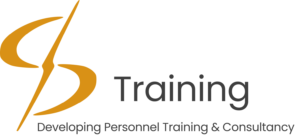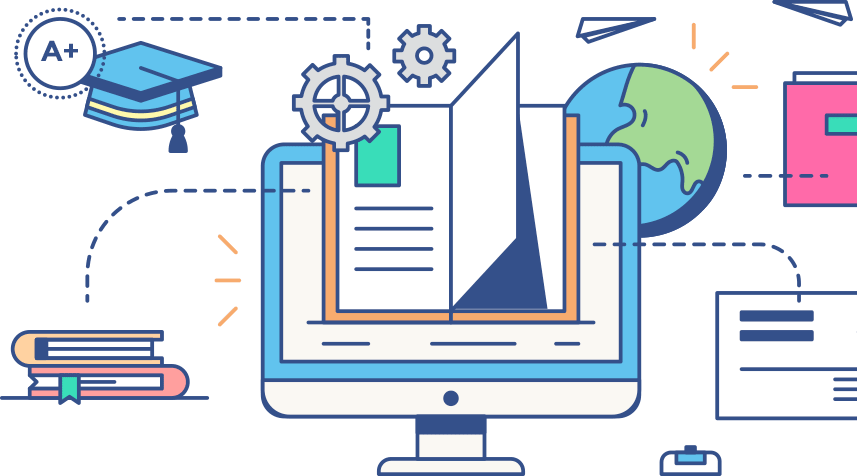In today’s fast-evolving educational landscape, online learning has emerged as a pivotal avenue for knowledge acquisition and skill development. The importance of online learning transcends traditional classroom settings, offering flexibility, accessibility, and a diverse range of educational opportunities. It caters to learners worldwide, breaking geographical barriers and providing access to courses, resources, and experts irrespective of location or time constraints.
The transition to online education marks a transformative shift, demanding adaptation and embracing technology as an integral part of the learning process. This shift isn’t merely a change in methodology; it’s a paradigmatic leap fostering digital literacy, self-discipline, and adaptability. Students, educators, and professionals navigate this transition, harnessing virtual platforms, interactive tools, and digital resources to explore, engage, and excel in their educational pursuits.
As we step into this new era of learning, the significance of online education becomes increasingly evident. It’s not just a response to external circumstances but a catalyst for a dynamic and inclusive learning environment. So, let us learn some tips that will guide our students toward success.
1. Establishing a Learning Environment
Establishing an optimal learning environment is fundamental to success in online education, ensuring focus, productivity, and engagement. A dedicated study space forms the cornerstone of this environment, offering a designated area solely devoted to learning. Whether a separate room, desk, or cozy corner, this space should be conducive to concentration, equipped with necessary tools, and free from distractions.
Setting a routine complements the study space, creating structure and consistency in daily learning endeavors. Establishing a schedule that aligns with personal rhythms aids in maximizing productivity. This routine should encompass dedicated study hours, breaks, and other commitments, fostering a sense of discipline and balance.
2. Time Management and Organization
Time management and organization are the linchpins of success in online learning, demanding structured approaches to maximize efficiency and productivity. Crafting a schedule acts as the foundational framework, delineating dedicated time slots for various learning activities. Creating a timetable that balances coursework, study sessions, and personal commitments cultivates a sense of discipline and consistency.
Prioritizing tasks within this schedule ensures that essential assignments, deadlines, and study materials take precedence. This involves identifying urgent and important tasks, allocating adequate time for each, and ensuring that key objectives receive the necessary attention, reducing last-minute rushes and stress.
3. Active Participation and Engagement
Active participation and engagement form the core of effective learning in an online setting, fostering a dynamic and immersive educational experience. Engaging in discussions is a key avenue to exchange ideas, share perspectives, and deepen understanding. Actively contributing to forums, group chats, or live sessions not only showcases involvement but also cultivates critical thinking and collaborative learning.
Seeking clarification and asking questions demonstrate a proactive approach to learning. It’s vital to address uncertainties promptly by reaching out to instructors or peers. This initiative not only clarifies doubts but also enhances comprehension, ensuring a comprehensive grasp of the subject matter.
Collaborating with peers amplifies learning through collective knowledge sharing and diverse perspectives. Engaging in group projects, study groups, or peer reviews encourages teamwork, mutual learning, and the exploration of different viewpoints. Leveraging the collective expertise of peers fosters a stimulating learning environment, promoting deeper insights and holistic understanding.
4. Effective Learning Strategies
Embracing effective learning strategies is instrumental in maximizing the benefits of online education, catering to diverse learning styles, and optimizing knowledge retention. Utilizing varied learning resources broadens the scope of understanding, from textbooks and articles to videos, podcasts, and interactive modules. Diversifying resources enriches learning experiences, catering to different preferences and enhancing comprehension through multiple perspectives.
Taking effective notes is a fundamental practice that consolidates learning. Developing a personalized note-taking system—be it summarizing key points, using visual aids, or organizing information—facilitates comprehension and retention. These notes serve as valuable study aids, aiding in revision and reinforcing understanding.
Engaging in self-assessment is a critical component of effective learning. Regularly evaluating one’s progress, comprehension, and areas of improvement fosters self-awareness and growth. Utilizing quizzes, self-tests, or reflection exercises allows learners to gauge their understanding, identify weaknesses, and adjust learning strategies accordingly.
5. Leveraging Technology for Learning
Leveraging technology is paramount in navigating the landscape of online education, necessitating familiarity with diverse tools and platforms. Familiarizing oneself with online tools and platforms—such as learning management systems, collaborative software, and communication channels—facilitates seamless navigation and efficient utilization of resources, ensuring a smooth learning experience.
Utilizing multimedia resources amplifies the learning journey by incorporating diverse mediums like videos, interactive presentations, and simulations. These resources offer dynamic and engaging content, catering to different learning styles and enhancing comprehension through visual, auditory, and interactive elements.
Staying tech-savvy and adaptable is essential in an ever-evolving digital landscape. Embracing continuous learning about new technologies, updates, and emerging tools ensures relevance and adaptability. It’s crucial to remain agile and open-minded, embracing technological advancements to optimize learning experiences and stay abreast of evolving educational methodologies.
6. Building a Support Network
Building a robust support network is instrumental in thriving within the realm of online learning, fostering guidance, assistance, and a sense of community. Seeking support from instructors forms a cornerstone in clarifying doubts, seeking guidance, and receiving feedback. Establishing open communication channels with instructors encourages a proactive approach to learning, ensuring clarity and direction in academic pursuits.
Utilizing online support services offered by educational institutions or platforms is a valuable resource. These services encompass tutoring, writing centers, technical support, and counseling services. Leveraging these resources provides access to specialized assistance, aiding in academic, technical, or personal challenges that may arise during the learning journey.
7. Maintaining Motivation and Discipline
Maintaining motivation and discipline is pivotal in the journey of online learning, requiring strategies to stay focused and driven. Setting milestones and rewarding oneself upon achieving them creates a roadmap for progress. Breaking down larger goals into smaller, achievable milestones provides a sense of accomplishment, while rewards act as incentives, fostering motivation and a sense of fulfillment.
Finding personal inspiration serves as a catalyst for sustained motivation. Identifying intrinsic motivators—such as personal goals, passions, or the desire for self-improvement—fuels determination and commitment. Aligning learning objectives with personal aspirations creates a deeper purpose and drives consistent effort.
8. Managing Stress and Wellness
Managing stress and prioritizing wellness is crucial for maintaining a healthy balance in the realm of online learning. Incorporating breaks and self-care routines within study schedules is essential. Taking regular breaks to recharge, practicing mindfulness, exercising, or engaging in hobbies rejuvenates the mind and body, enhancing focus and overall well-being.
Balancing workload and relaxation is key to preventing burnout. Establishing boundaries and allocating time for studies, leisure, and rest ensures a balanced lifestyle. It’s vital to avoid overcommitment and maintain a healthy equilibrium between academic pursuits and personal relaxation.
Seeking help for stress management is a proactive step toward well-being. Accessing resources like counseling services, mental health support, or stress management programs offered by educational institutions or online platforms provides valuable assistance. Learning effective stress management techniques equips individuals with tools to navigate challenges and maintain emotional well-being.
Conclusion
Emphasizing the potential for success in online education is paramount. Online learning isn’t merely a shift in methodology; it’s a gateway to diverse learning opportunities, offering flexibility, accessibility, and a platform for continuous growth. It presents a landscape where dedication, resourcefulness, and innovation pave the way for academic excellence and personal development.
By emphasizing this potential, learners are inspired to embark on a transformative educational journey, equipped with the tools and mindset for success in the digital realm. You can also visit our website where you will find a lot of accredited short courses online that will help you upskill yourself.




